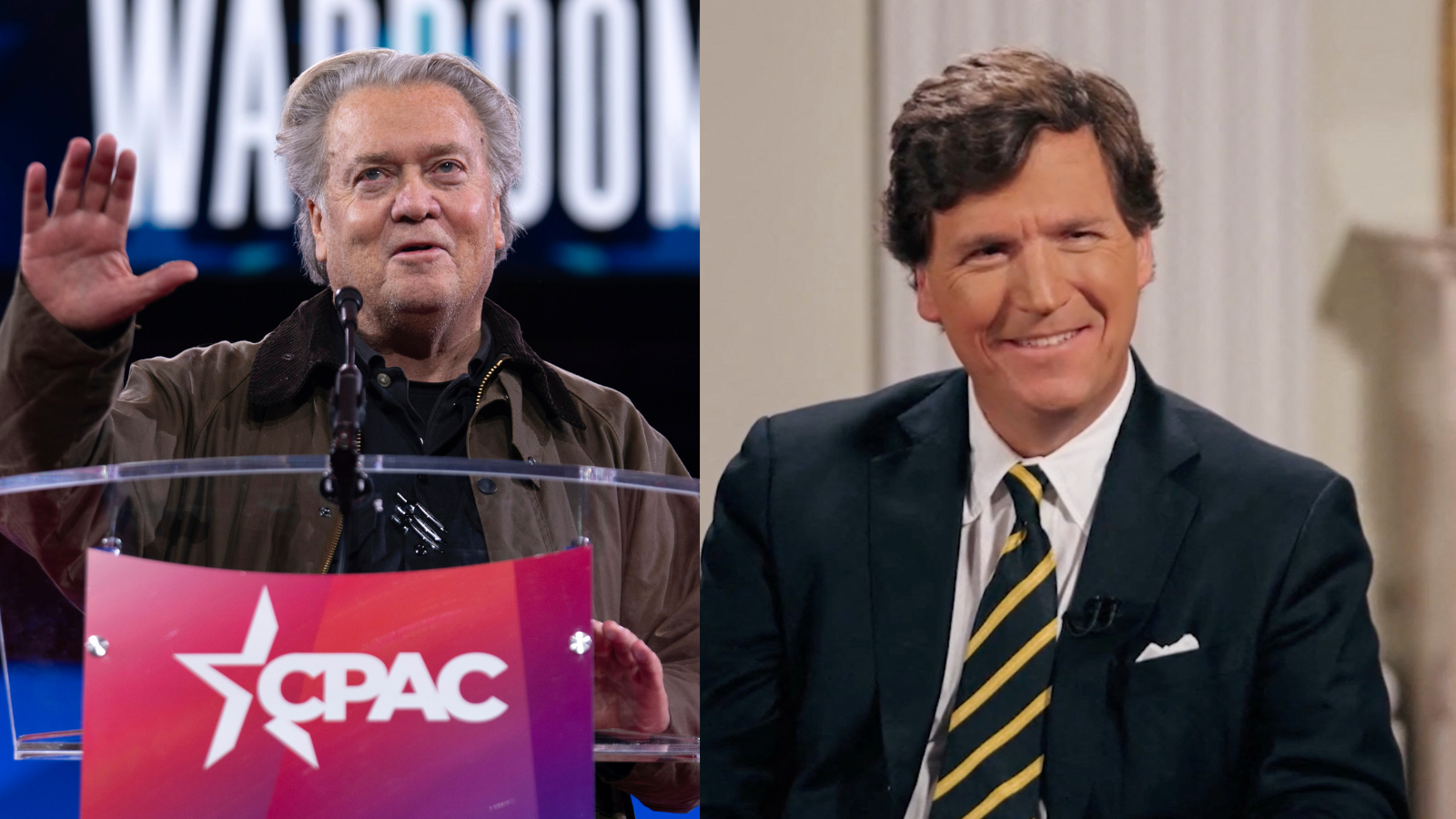Tucker Carlson and Steve Bannon Clash with Trump Over Iran-Israel Conflict: What’s Next?
In a recent surge of geopolitical tension, former President Donald Trump has found himself at odds with some of his staunchest MAGA supporters: Tucker Carlson and Steve Bannon. This unlikely clash emerged in the context of their differing viewpoints regarding the ongoing Iran-Israel conflict. As the situation escalates, players on both sides of the political spectrum are pushing narratives that reflect their interpretations of both foreign policy and national security.
Trump’s Warning to Iran
On Monday, amidst growing military tensions in the Middle East, President Trump issued a stark warning to the Iranian people, advising them to “evacuate immediately.” This cautionary statement comes at a time when missile strikes and military engagements between Iran and Israel have intensified, significantly alarming both domestic and international observers.
The MAGA Divide
Since the conflict’s ignition, Tucker Carlson and Steve Bannon have publicly criticized the level of U.S. involvement in the Iranian-Israeli hostilities. In an episode of his “War Room” podcast, Carlson expressed his fears regarding the implications of the U.S.’s military engagement, asserting, “I think we are going to see the end of American empire.” His comments suggest a broader apprehension that the current conflict could undermine not only Trump’s presidency but also the fabric of American influence abroad.
Contrarily, Trump has responded sharply to these criticisms. During a recent G7 summit, he downplayed Carlson’s claims, stating, “I don’t know what Tucker Carlson is saying. Let him go get a television network and say it so that people listen.” This was followed by a repost on Truth Social, where Trump labeled Carlson as “kooky” and insisted that “IRAN CAN NOT HAVE A NUCLEAR WEAPON!” These exchanges highlight the growing friction within the MAGA faction and underscore the divergent paths that key figures within the movement are considering as tensions escalate.
What’s Driving the Conflict?
The renewed Iran-Israel conflict isn’t just a matter of regional squabbles; it speaks volumes about America’s strategic positioning in global politics. Here are key factors contributing to the current situation:
- Nuclear Aspirations: Iran’s ongoing nuclear program continues to ignite fears, especially among its neighboring states, and notably Israel. These fears are central to U.S. foreign policy, where the commitment to prevent Iran from acquiring nuclear weapons shapes military actions.
- Geopolitical Alliances: The shift in alliances, particularly as Iran strengthens ties with nations like Russia and China, presents new challenges to U.S. interests in the region.
- Domestic Political Dynamics: Political figures like Carlson and Bannon are now questioning Trump’s previous hardline approaches, suggesting a divide in how America should approach conflicts in the Middle East.
Immediate Ramifications for U.S. Foreign Policy
Trump’s decision to cut his G7 trip short to address the intensifying Middle East situation indicates that the administration views developments in Iran and Israel as a paramount concern. White House Press Secretary Karoline Leavitt conveyed that Trump’s return was prompted by “many important matters” that demand his immediate attention, and it was clear that national security topped the priority list.
Further actions by Trump at the G7 included signing a substantial trade deal with the UK, which indicates that while he prioritizes the situation in the Middle East, he is also eager to maintain strategic relationships elsewhere. However, the overarching theme remains: Trump’s approach to Iran is deeply intertwined with his broader foreign policy doctrine, which often favors decisive military responses to deter perceived threats.
The Road Ahead
The ongoing tensions between Iran and Israel are expected to impact the dynamics of both international relations and U.S. domestic politics significantly. The clash between Trump and MAGA allies Carlson and Bannon is indicative of deeper fissures within the movement regarding how America should engage with its adversaries on the world stage. As Trump navigates this complex landscape, the implications could resonate throughout the Republican Party’s base, influencing the party’s foreign policy approach in the long run.
Only time will reveal the full impact of these developments, but as the Iran-Israel conflict intensifies, watching how these prominent figures position themselves will be crucial in determining the future of U.S. foreign intervention strategies.






